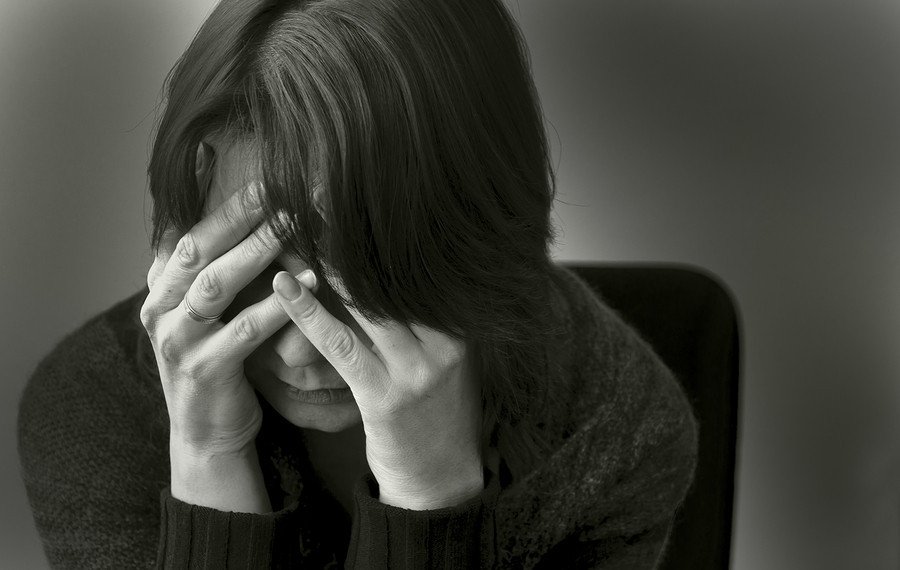
Tips for Managing Depression
Some medical situations are immediately apparent to others and as a result, the people around you accommodate accordingly. A person with a broken leg who declines an invitation to participate in a charity football match at the weekend is never going to be judged, nor are they likely to be treated differently whilst they take time out to recover.
Mental health conditions, on the other hand, such as MDD (Major Depressive Disorder) or depression, are entirely invisible, and it can be hard for some people to understand what it is like, particularly if they have never had to live with the condition.
Whether you have been battling depression for many years, or else you have only recently been diagnosed, it is likely to be a long and challenging road to recovery. Still, this article gives you some tips for managing it.
Adopt a Deserving Animal

Taking care of a pet can be an exceedingly helpful motivational boost. Although adopting an animal from a local rescue charity is not suitable for everyone, should you be able to, you will quickly find a renewed motivation in your everyday life.
Looking after an animal, especially one that has come from a traumatic and even an abused background and developing a bond with them can positively impact your mental health in the following ways:
- Companionship will serve to reduce your anxiety levels
- The introduction of exercise into your daily routine
- A reason to get up in the morning and feed your pet
- A casual (yet important) framework of structure for your day
- The opportunity to join a community of like-minded pet owners
- A feeling of being needed and responsibility
- A way to combat isolation and loneliness
Having an animal that depends on you for their care and wellbeing can be a fantastic motivation to get yourself into a routine, and you might find that through looking after them, you start looking after yourself, and your mental health starts to improve over time.
Spend More Time Outside
As human beings, the body and mind are both made to be exposed to the elements, and the first-world comfort of technology, central heating and days spent lying on the sofa watching television is unhealthy.
Spending more and more time outside, whether taking your morning coffee in the back garden or even factoring in a short walk around the block when you return from work, could make a huge difference to how you feel.
Depending on the severity of your depression and, of course, your triggers, doing the best you can to leave the house every day and either drive or walk to your local park will benefit your body and your mind in the following ways (to name just a few):
- An improvement in your reasoning and decision-making skills
- Physical exercise releases endorphins in the brain
- Vitamin C from the sun
- A way to meet new people (if only to exchange pleasantries)
- A natural way to relax and clear your mind
In addition to embracing nature, a small change to your home is also worth considering: to bring the outside inside and invest in a selection of indoor plants.
Indoor plants are not only thought to boost mood and increase motivation levels, but also work to clean and purify the air, meaning they are positive influencers on both physical and mental health.
Try Natural Supplements
You may well already be taking anti-depressants (typically SSRIs). If so, you should always book an appointment with your doctor before taking any other medication, whether that is natural or not.
The general consensus amongst medical professionals is that, due to a wide variety of potential catalysts, depression is caused by a lack of serotonin in the brain. Herbal supplements such as St John’s wort are thought to positively impact these serotonin levels, and some people choose to go down this herbalist route when looking for a treatment, however if you are taking antidepressants, be careful because herbal remedies like St John’s wort can interact with those medications.
CBD is the non-psychoactive ingredient of cannabis, and does not contain THC which gives the ‘high’ that the drug is known for, but is said to still give the similar calming effects. UK Gummies by CBD Guru are a newer natural supplement which, although not clinically proven to affect mood and the state of a person’s mental health, they have anecdotal reports of helping.
Stay Away from Negative People

Unfortunately, there are still a great many people who believe that mental health disorders such as depression, anxiety and even PTSD simply do not exist and that individuals who have been diagnosed are using them as an excuse for various habits or behaviours.
The simple fact of the matter is that those people who refuse to accept depression as a legitimate mental health condition are the lucky ones who have never experienced it. If your close friends and family members have experienced depression in the past themselves, or else are open and understanding to the illness, then opening up to them will only serve to help you.
On the other side of the coin, if there are certain people in your friendship group, or a colleague at work who simply does not understand or accept that depression and other mental illnesses can be extremely debilitating, then you need to move away from their influence.
Many people living with depression find it incredibly difficult to socialise, either because they feel as if they are forced to put on a ‘mask’, or their social battery is such that it takes everything out of them to even talk out loud for longer than a few minutes. You cannot expect your friends and family to be there to support you if you do not at least try to explain to them how you feel but conversely, should you only experience negative attitudes from them, this will only make you feel worse.
Improve Your Diet
Although it seems as if eating more fresh fruit and vegetables is the answer to everything, the simple fact is that the healthier your diet, the stronger your physical body and the more centred and functioning your mental health will be too.
You may turn to junk food when you are feeling particularly low and unmotivated, and even though a large bar of chocolate will certainly make you feel better in the short term, junk food can actually make you feel a whole lot worse.
Some people tend to put on a considerable amount of weight after being diagnosed with depression, especially if they have been prescribed medication, and others lose the motivation to eat regularly and instead drop weight quickly.
Making sure you consume three meals a day, full of energy-boosting ingredients and natural foods, may not seem as if it could possibly help you fight depression. Still, numerous scientific studies have proven that eliminating or reducing the following could help:
- Caffeine
- Alcohol
- Nicotine (in the form of cigarettes and e-cigarettes)
- Illegal Drugs
- Saturated Fats
- Heavily Processed Food
- Refined Sugars
Help Other People
Next, even if you do not consider yourself to be particularly altruistic and have enough on your plate trying to get your ducks in a row, donating just a couple of hours of your week to helping other people could go a long way to boosting your self-esteem.
Depression tends to make you feel as if you are only a burden on the people around you and that your loved ones will probably be a lot better off without you in their lives. It is vital you know that this is not reality. It is just the disease.
Small acts of kindness have been linked to boosts in the levels of endorphins and serotonin in the brain, which are the principal chemicals that control mood and motivation.
Perhaps you could spend a couple of hours on the weekend helping out in a local charity shop, signing up to donate money to an animal charity, or even leaving positive reviews of services and products you buy and enjoy.
See a Counsellor
Finally, even if you have a strong support system of family and friends around you, sometimes talking through how you feel and the conflicting emotions you are experiencing on a daily basis with a professional stranger can do wonders for your attitude.
There are a number of mental health charities in the UK that specialise in offering impartial advice and professional counsellors who are trained in talking to people living with depression, such as MIND, for example.
Cognitive Behavioural Therapy (CBT) is a leading form of talking therapy which has been proven to help those living with depression and forms the basis of counselling. The three fundamental principles of CBT work to tackle both the symptoms of the condition and the triggers. Very much a collaborative therapy, CBT focuses on changing the thoughts associated with particular behavioural patterns and works to transform them into less destructive ones. If you are currently in a place in your life where you cannot face talking so openly about how you feel, there are plenty of CBT workbooks available whereby you can apply this effective therapy to yourself at home.




